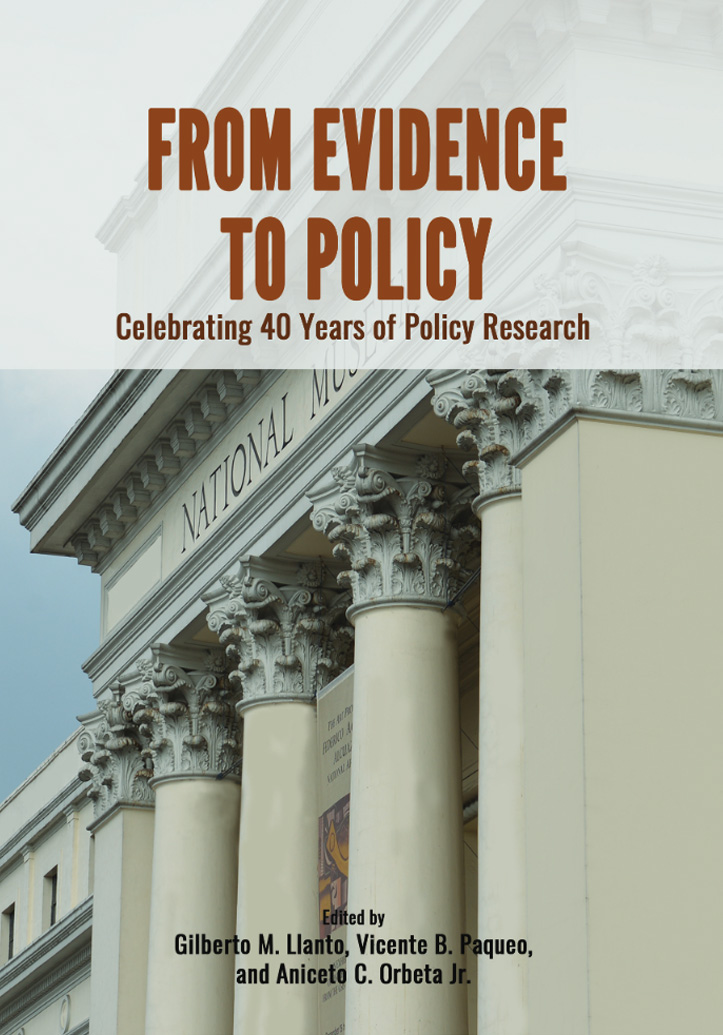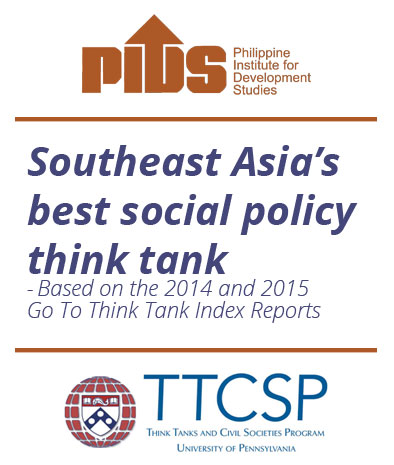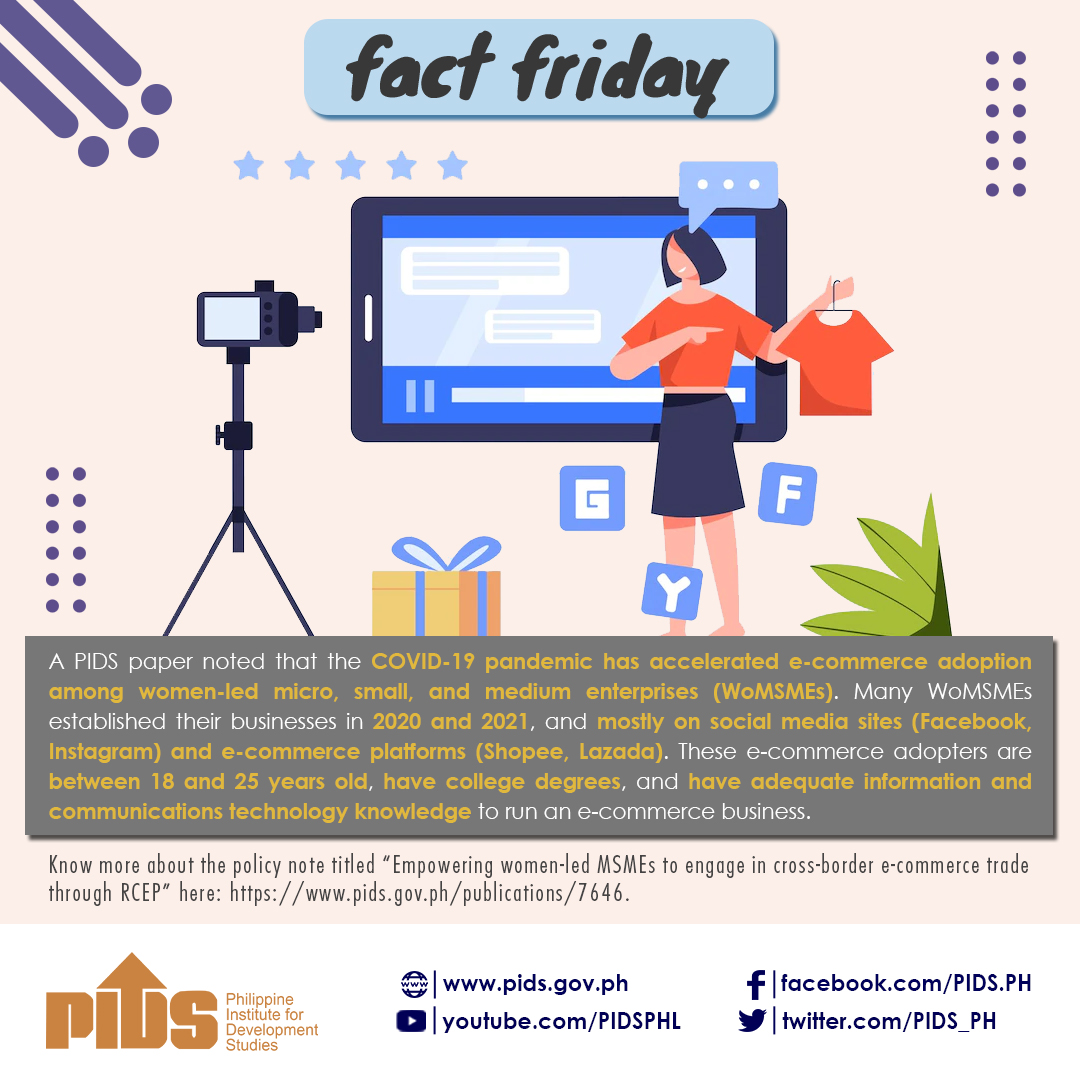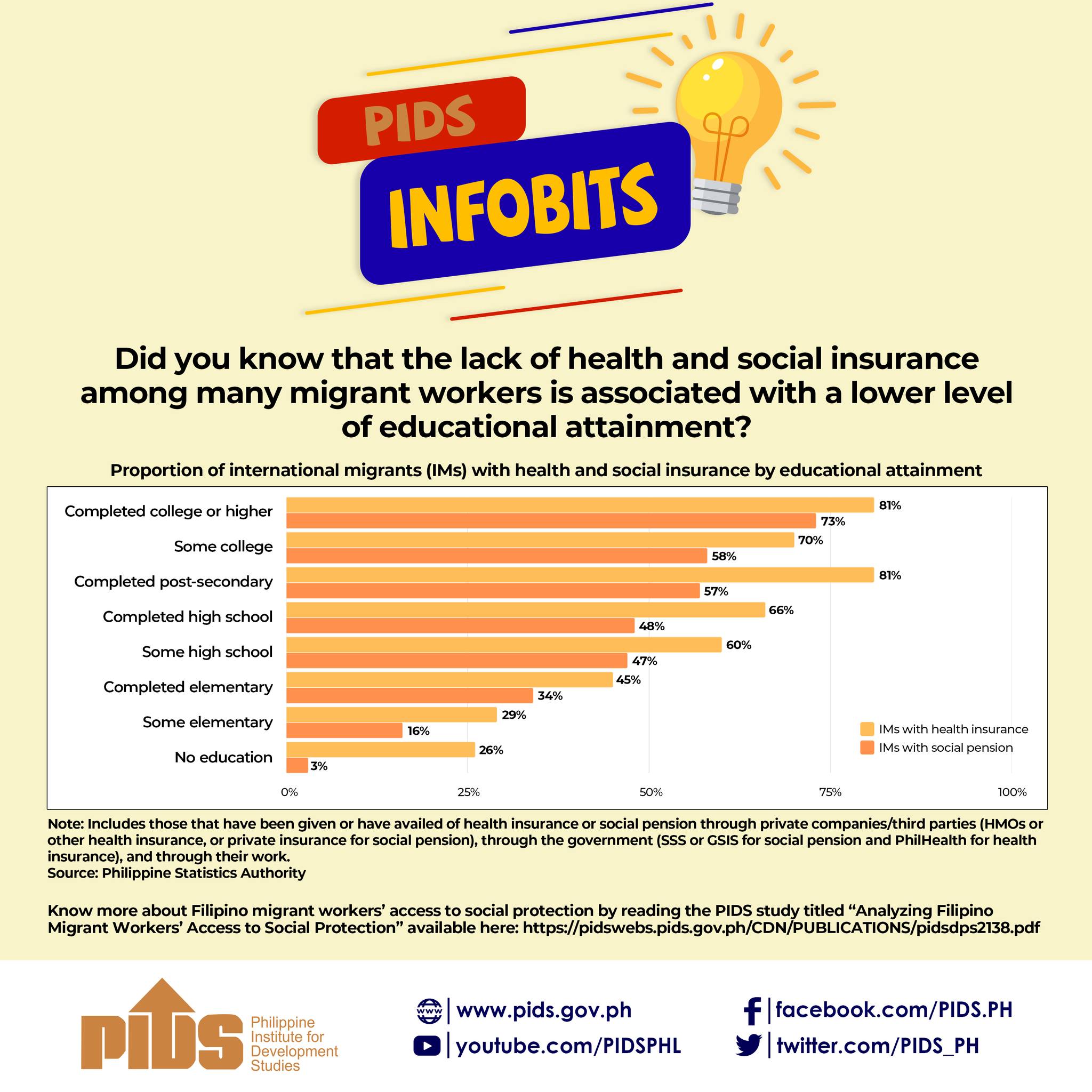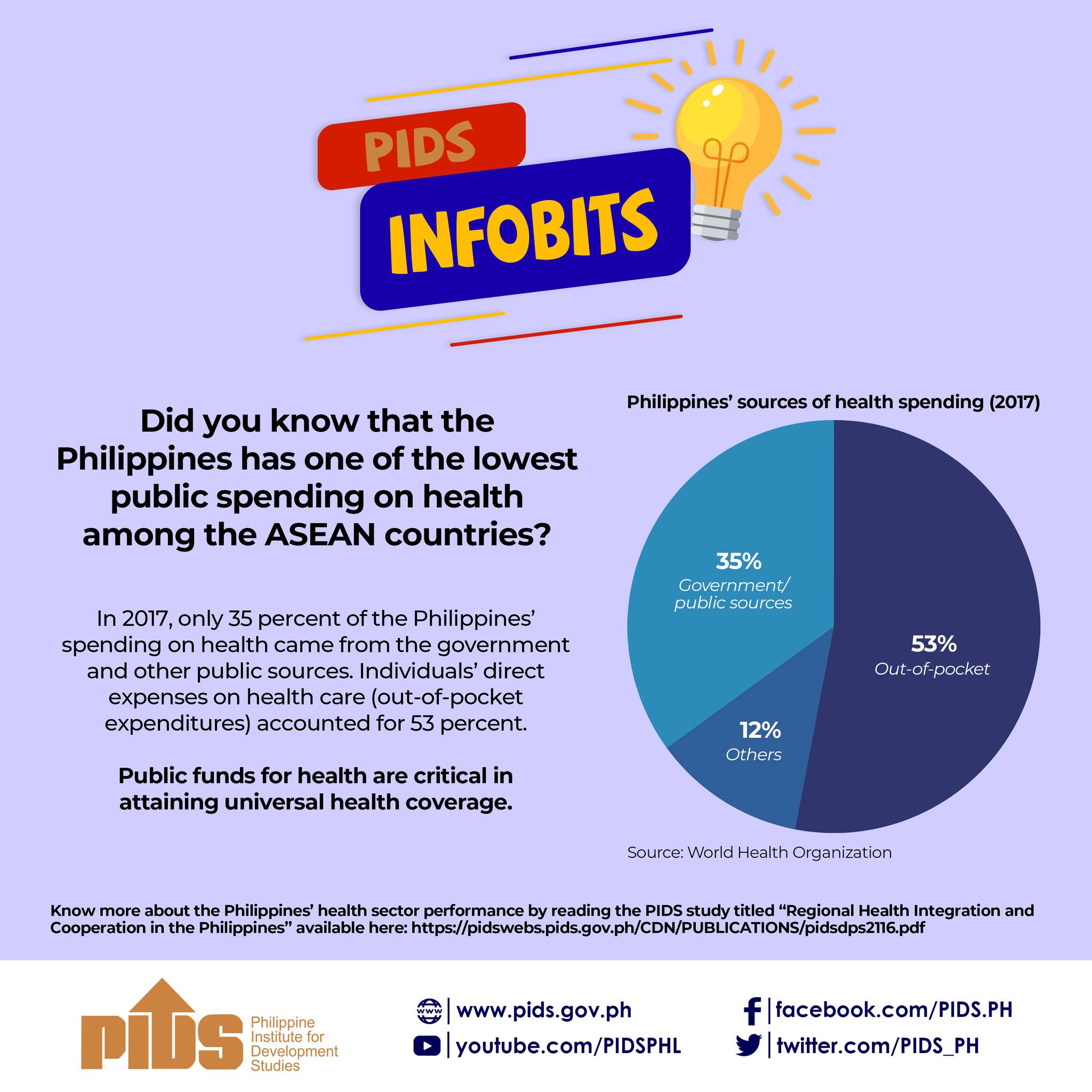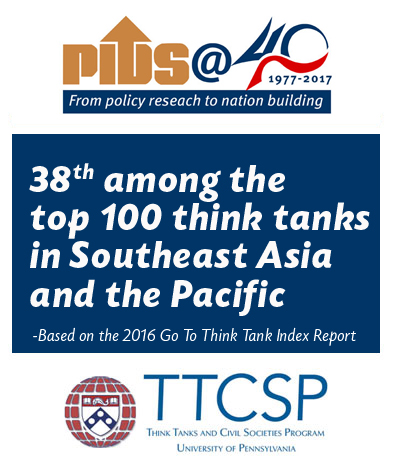
For the fifth time since 2012, state think tank Philippine Institute for Development Studies (PIDS) has been ranked one of the world's top think tanks. In the 2016 edition of the Go To Think Tank Index Report released by Think Tanks and Civil Societies Program (TTCSP) of the University of Pennsylvania, PIDS ranked 38th among the 100 top think tanks in Southeast Asia and the Pacific. It has also retained its rank as number one social policy think tank in Southeast Asia and 37th among the top 100 in the world under this category.
PIDS also performed well in five other categories. It maintained its rankings as among the top international development think tanks (70th among the top 130) and among the top education policy think tanks (33rd among the top 65). PIDS also made it to the list of best government-affiliated think tanks and think tanks with the best external relations/public engagement program. The East Asian Development Network (EADN) Secretariat, which PIDS managed from 2010 to 2016, also ranked as among the best think tank networks. The EADN is a network of institutes and centers in developing countries of East Asia. It sponsors research and capacity-building activities.
The 2016 Go To Think Tank Index Report marks the 10th anniversary of the report. A total of 6,846 think tanks, including 21 from the Philippines, were assessed in this round. Meanwhile, over 4,750 journalists, policymakers, public and private donors, and functional and regional area specialists from all over the world participated in the ranking process.
TTCSP defines think tanks as public-policy research analysis and engagement organizations that generate policy-oriented research, analysis, and advice on domestic and international issues, thereby enabling policymakers and the public to make informed decisions about public policy.
The Go To Think Tank Index is a comprehensive ranking of the world's top think tanks and has been described as the premier database and measure of world think tanks. It aims to increase the profile, performance, and impact of think tanks, and to create a transnational and interdisciplinary network of centers of public policy excellence. #
The full report may be accessed here
PIDS also performed well in five other categories. It maintained its rankings as among the top international development think tanks (70th among the top 130) and among the top education policy think tanks (33rd among the top 65). PIDS also made it to the list of best government-affiliated think tanks and think tanks with the best external relations/public engagement program. The East Asian Development Network (EADN) Secretariat, which PIDS managed from 2010 to 2016, also ranked as among the best think tank networks. The EADN is a network of institutes and centers in developing countries of East Asia. It sponsors research and capacity-building activities.
The 2016 Go To Think Tank Index Report marks the 10th anniversary of the report. A total of 6,846 think tanks, including 21 from the Philippines, were assessed in this round. Meanwhile, over 4,750 journalists, policymakers, public and private donors, and functional and regional area specialists from all over the world participated in the ranking process.
TTCSP defines think tanks as public-policy research analysis and engagement organizations that generate policy-oriented research, analysis, and advice on domestic and international issues, thereby enabling policymakers and the public to make informed decisions about public policy.
The Go To Think Tank Index is a comprehensive ranking of the world's top think tanks and has been described as the premier database and measure of world think tanks. It aims to increase the profile, performance, and impact of think tanks, and to create a transnational and interdisciplinary network of centers of public policy excellence. #
The full report may be accessed here

